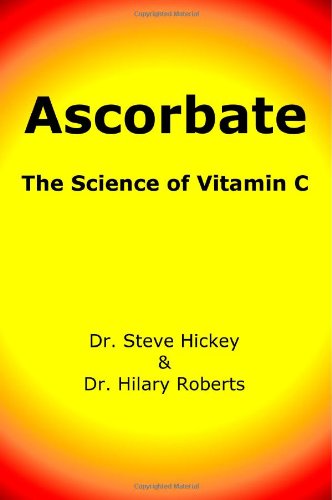Ascorbate: The Science of Vitamin C epub
Par lucas jeffrey le samedi, août 20 2016, 11:51 - Lien permanent
Ascorbate: The Science of Vitamin C. Steve Hickey Hilary Roberts

Ascorbate.The.Science.of.Vitamin.C.pdf
ISBN: 1411607244,9781411607248 | 264 pages | 7 Mb

Ascorbate: The Science of Vitamin C Steve Hickey Hilary Roberts
Publisher:
AscorbateWeb, a historical compendium of 20th-Century medical and scientific literature demonstrating the efficacy of vitamin C. The vitamin C effects are all the usual effects of the usual small doses of vitamin C and also the effects of the moderate and usual high doses of the vitamin C. Vitamin C There is continuing debate within the scientific community over the best dose schedule (the amount and frequency of intake) of vitamin C for maintaining optimal health in humans. Although The National Academy of Sciences has established 90 mg/day (for adult males) and 75 mg/day (for adult females) as the Recommended Dietary Allowance (RDA) for vitamin C [9]. Critical value of high dose vitamin C for humans. Vitamin C or L-ascorbic acid, or simply ascorbate (the anion of ascorbic acid), is an essential nutrient for humans and certain other animal species. Vitamin C has been advocated for many other therapeutic uses. Researchers at Mount Sinai School of Medicine have shown that Vitamin C actively protects against osteoporosis, the findings are published in the October online edition of PloS ONE. Despite the fact that most mammals can synthesize ascorbate (Asc), humans (along with other primates, bats, and guinea pigs) are unable to make vitamin C as a result of a mutation to the gene encoding L-gulono-1,4-lactone oxidase, the last enzyme in the Asc biosynthetic pathway [1]. [0007]Since the mid-1930's, the volume of research in vitamin C has been enormous, and it is possible that no single subject in the field of biology has been the focus of more research and more scientific journal articles than vitamin C. Http://www.seanet.com/~alexs/ascorbate/.